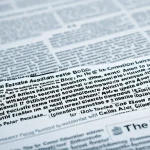Key Factors Shaping the UK’s Future International Relationships
Understanding UK international relationships requires examining the interplay of diplomatic trends and geopolitical influences post-Brexit. The UK’s new economic policy emphasizes forging diverse global alliances beyond Europe, aiming to balance trade, security, and political interests. This shift reflects a desire to enhance flexibility in negotiations, adapting to rapidly changing global circumstances.
Post-Brexit policies have encouraged the UK to broaden its diplomatic horizons, engaging with emerging markets and traditional allies alike. Economic policy now prioritizes trade agreements that complement the domestic economy while securing strategic partnerships for security cooperation. Political drivers also weigh heavily; domestic politics often sway the international agenda, with leadership decisions reflecting national priorities and public sentiment.
Also read : What Changes Could Help Revitalize the UK’s News Industry?
Security concerns, including cooperation on intelligence and defense, remain a cornerstone of foreign partnerships. Simultaneously, economic imperatives drive the pursuit of free trade deals and investment flows. The delicate balance between maintaining historical ties and pursuing new opportunities demonstrates the complexity of current diplomatic trends. This dynamic environment requires the UK to remain agile, leveraging geopolitical influences to sustain and expand its global presence.
Evolving Diplomacy and Political Alliances
Brexit marked a pivotal moment for UK diplomacy, prompting a reassessment of its role on the global stage. The UK’s departure from the EU necessitated recalibrating relationships that were once seamless within the union. This shift compelled the UK to foster political alliances beyond Europe, focusing on the strengthening of ties with traditional partners such as the USA and Commonwealth countries.
In parallel : What Are the Long-Term Implications of Recent Changes in UK Immigration Policy?
Post-Brexit foreign policy has prioritized revitalizing the “special relationship” with the USA, emphasizing security cooperation and trade. Concurrently, the UK has actively pursued deeper engagement with Commonwealth nations, aiming to create a network of alliances reflecting shared history and values. These efforts illustrate the UK’s strategy to compensate for reduced EU influence by leveraging longstanding partnerships.
In response to global power shifts, the UK is also exploring new strategic alliances in regions like Asia and the Indo-Pacific. This proactive stance reflects an acknowledgment of emerging powers reshaping the international order. By diversifying its diplomatic portfolio, UK diplomacy aims to secure its position amidst fluid geopolitical landscapes, ensuring resilience and relevance in post-Brexit foreign policy.
Trade Agreements and Economic Partnerships
Understanding the significance of UK trade agreements is crucial for grasping how the nation navigates its global trade strategy. Recent deals have emphasized opening doors to international market access, aiming to diversify and strengthen economic ties. These agreements help UK exporters overcome barriers, aligning standards and regulations with partners to ensure smoother trade flows.
Emerging markets offer fertile ground for growth, presenting new opportunities beyond traditional trading partners. By engaging in strategic economic partnerships, the UK can capitalize on sectors where it holds competitive advantages. Regulatory alignment plays a vital role here; harmonized standards reduce complexities, lower costs, and attract investment.
Negotiations focus heavily on aligning requirements related to product safety, environmental policies, and digital trade rules, enhancing compatibility between trading blocks. This alignment not only facilitates current agreements but also builds a foundation for future ones, fostering stable trade relations and expanding the UK’s reach in diverse markets.
By prioritizing these elements, the UK crafts a robust trade network, balancing access to established markets while tapping into emerging economies, a strategy critical for maintaining its economic resilience in a changing global landscape.
The UK’s Role in International Organizations
The UK’s role in international organizations remains pivotal to shaping global governance. As a permanent member of the United Nations Security Council, the UK wields significant influence over decisions related to international security and peacekeeping. This position ensures the UK’s voice is integral in addressing conflicts and humanitarian crises worldwide.
Within NATO, the UK is a leading force in collective defense, contributing substantial military capabilities and strategic expertise. Its involvement underscores a commitment to safeguarding alliances and deterring aggression in an increasingly complex geopolitical environment. Beyond security, the UK engages actively in the G7, contributing to economic discussions that impact global markets and development policies.
However, the UK’s leadership in these bodies faces evolving challenges, such as adapting to shifting geopolitical dynamics and balancing national interests with international responsibilities. Opportunities exist for the UK to leverage its diplomatic relationships to promote cooperation on climate change, cybersecurity, and trade.
In sum, the UK’s ongoing participation across the United Nations, NATO, and other international platforms ensures it remains a central actor in multilateral decision-making and global governance. This enables the UK to both influence and respond proactively to international challenges.
Addressing Global Challenges Together
Tackling global challenges requires united efforts across nations. Security cooperation is crucial to counter emerging threats such as international crime, terrorism, and cyber-attacks. By sharing intelligence and coordinating law enforcement strategies, countries can effectively respond to these dangers and protect their citizens.
In parallel, climate change diplomacy remains at the forefront of international agendas. The UK’s commitment to climate change targets and sustainable development goals illustrates the importance of collaborative action. Efforts include reducing carbon emissions, promoting renewable energy, and supporting vulnerable communities affected by environmental shifts.
Technological collaboration creates new avenues for addressing global issues. Partnerships in digital innovation, scientific research, and advanced technologies foster the development of tools to improve health, security, and infrastructure worldwide. For example, joint ventures in artificial intelligence and data sharing enhance disaster response and environmental monitoring.
By combining security cooperation, climate change diplomacy, and technological collaboration, countries create a robust framework to manage complex global challenges. This unified approach maximizes resources and expertise while fostering trust and resilience on the international stage.
Expert Predictions and Scenario Analysis
Experts foresee evolving future scenarios shaped by shifting geopolitical trends and the UK’s strategic ambitions. Current expert analysis highlights an increasingly multipolar world where the UK must balance relations with traditional allies and emerging powers. Forecasts indicate a rise in regional tensions and economic realignments that could redefine UK foreign policy priorities.
Data-driven models project several possible trajectories for UK international engagement. In optimistic scenarios, strengthened partnerships within Europe and the Commonwealth foster stability and growth. Conversely, more challenging outlooks anticipate disruptions from global shocks—such as supply chain crises or geopolitical conflicts—that could strain diplomatic ties and trade relations.
Understanding these possibilities aids policymakers in preparing adaptive strategies. For example, a surge in geopolitical volatility might prompt the UK to deepen defense collaborations or diversify trade partners. Recognizing these UK foreign policy forecasts enables proactive responses to uncertain conditions.
Ultimately, the interplay between global shifts and UK actions will determine the nation’s position on the world stage. Ongoing expert analysis remains essential for navigating these complex, dynamic international landscapes.
Practical Benefits of Robot Hoovers
Robot hoovers bring remarkable convenience to daily cleaning routines. By automating vacuuming, you save time and effort, freeing your schedule for more enjoyable activities. These devices excel in maintaining cleanliness on a consistent basis, which is key for reducing allergens and dust accumulation in your living space.
With smart navigation systems, robot hoovers can seamlessly map out your home, avoiding obstacles and cleaning under furniture where traditional vacuums struggle. This enhances the overall cleanliness by reaching areas that often go unnoticed. Models equipped with advanced sensors ensure efficient coverage without repeated passes over the same spot, optimizing battery life and cleaning time.
Moreover, modern robot hoovers often come with app control, enabling you to start or schedule cleaning sessions remotely. This means your floors can be spotless the moment you walk through the door, even if you’ve been out all day.
Choosing a robot hoover that supports multiple floor types—carpets, hardwood, tiles—further improves practicality, seamlessly adapting to your home environment. The compact design and quiet operation of these devices mean minimal disruption to your daily life.
Ultimately, robot hoovers offer a smart, efficient solution that fits the needs of busy households.




